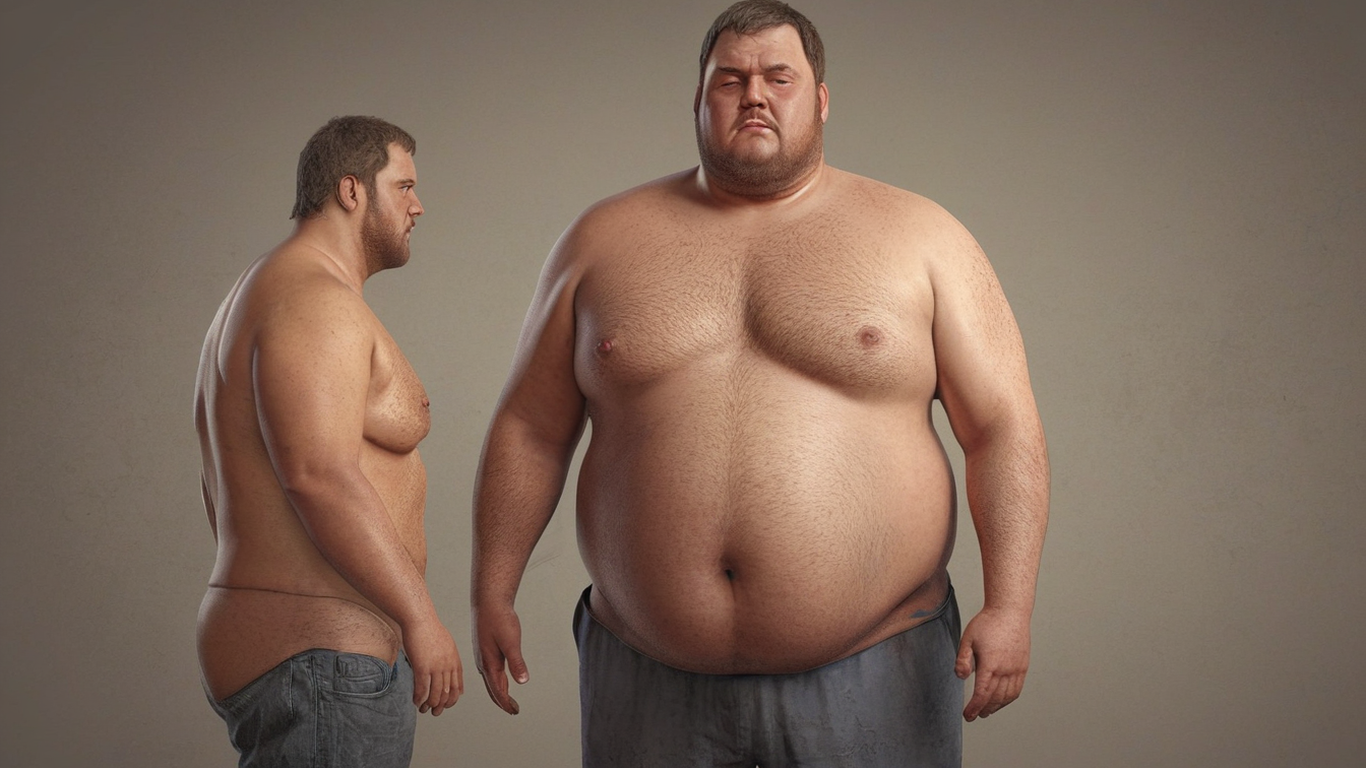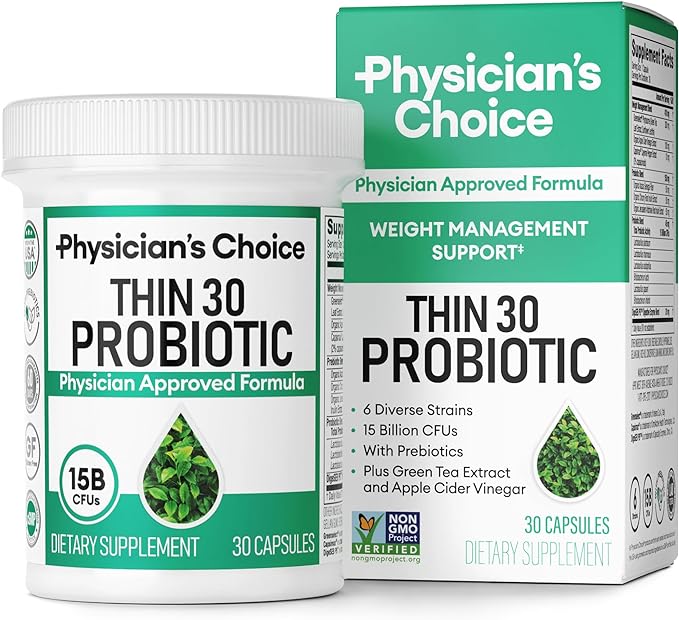Are you struggling with weight loss? You may be surprised to discover that Testosterone, typically associated with male virility, could play a pivotal role in your journey to a leaner physique.
The correlation between Testosterone and weight loss is a topic that has piqued the interest of many health and wellness enthusiasts. It’s a subject that delves into the intricate dynamics of human biology, specifically the role hormones play in weight management.
Our bodies are complex systems, and understanding how these systems interact can provide valuable insights into our overall health. In this regard, the connection between Testosterone and weight loss is no exception. This topic will take us on a fascinating exploration of human physiology, shedding light on how this potent hormone can influence our body weight.
So, if you’re eager to understand the potential link between Testosterone and your weight loss efforts, you’ve come to the right place. Let’s dive deeper into this intriguing topic.

Does Testosterone Influence Weight Loss?
Testosterone plays a pivotal role in the human body, influencing multiple physiological processes. A significant connection has been established between testosterone and weight loss, with research demonstrating that higher levels of this hormone can promote fat burning.
Testosterone is known to enhance muscle growth, which in turn increases the body’s metabolic rate. This results in more calories being burned, even when the body is at rest. Consequently, men with higher testosterone levels often find it easier to lose weight and maintain a healthy body composition.
However, it’s important to note that while testosterone can aid in weight loss, it’s not a magic solution. A balanced diet and regular exercise are still crucial for sustainable weight loss.
Testosterone levels can be influenced by various factors, including age, lifestyle, and overall health. Men who are overweight or obese often have lower testosterone levels, which can make weight loss more challenging. In such cases, testosterone therapy may be considered as part of a comprehensive weight loss plan.
In summary, testosterone can indeed influence weight loss, but it’s just one piece of the puzzle. The key to successful weight loss is a holistic approach that includes a healthy diet, regular exercise, and maintaining optimal hormone levels.
What Is Testosterone?
Testosterone is a hormone primarily produced in the testicles for men and in smaller amounts in the ovaries and adrenal glands for women. It plays a crucial role in developing male growth and masculine characteristics. Testosterone levels can influence various aspects of your health, including body fat, muscle mass, sexual health, mood, and more. Testosterone and weight loss often have a connection.
Testosterone levels can impact weight loss and fat storage. Men with low testosterone may experience an increase in body fat. Conversely, high levels of testosterone could lead to less body fat and more muscle mass. Hence, it’s not surprising that some men turn to testosterone-boosting supplements in hopes of losing weight.
However, the relationship between testosterone and weight loss isn’t that simple. While testosterone can aid in fat loss, it’s not a magic solution for weight loss. A balanced diet, regular exercise, and a healthy lifestyle are still the most effective strategies for weight loss.
- Low testosterone levels may lead to weight gain.
- High testosterone levels may promote muscle mass and aid in weight loss.
- Testosterone is not a magic solution for weight loss.
It’s important to note that manipulating your testosterone levels should always be done under medical supervision. If you suspect you have low testosterone, consult your doctor. They can assess your symptoms, conduct tests, and recommend appropriate treatment.
How Is Testosterone Related to Fat Distribution?
Testosterone plays a crucial role in fat distribution in the body. This hormone, primarily associated with male characteristics, is also essential for maintaining lean muscle mass, bone density, and body fat regulation. Testosterone influences the way our bodies store fat. High testosterone levels are linked to lean body mass, while low levels are associated with increased body fat, especially in the abdominal area.
The relationship between testosterone and weight loss is a complex one. Testosterone levels can impact metabolic rate, which in turn influences how efficiently the body burns calories. A decrease in testosterone levels can lead to a slower metabolism, causing weight gain. On the other hand, weight loss can boost testosterone levels, creating a positive cycle of fat burning and hormone balance.
In terms of fat distribution, men with lower testosterone levels may notice an increase in fat storage in the abdominal area, a pattern often referred to as an “apple” shape. This is because testosterone plays a role in regulating lipolysis (the breakdown of fats), and a deficiency in this hormone can hinder this process.
Testosterone replacement therapy is often used to help balance hormone levels and aid in weight loss. However, it’s important to note that this should be done under medical supervision, as excessive testosterone can have side effects.
Incorporating regular exercise, particularly resistance and high-intensity interval training, can also help boost testosterone levels naturally and aid in weight loss. Proper nutrition is also key, with a focus on balanced meals rich in lean proteins, healthy fats, and complex carbohydrates.
Overall, while testosterone plays a significant role in fat distribution and weight loss, it’s just one piece of the puzzle. Other factors, such as diet, exercise, sleep, and stress levels, also play a crucial role in weight management and overall health.
Can Testosterone Supplements Aid in Weight Loss?
Testosterone, a hormone primarily produced in men’s testicles, plays a significant role in maintaining muscle mass, fat distribution, and bone density. Recent studies suggest that testosterone supplements may aid in weight loss, particularly in men with low testosterone levels.
Testosterone deficiency can lead to increased body fat and reduced muscle mass, which in turn can contribute to obesity. By supplementing testosterone, one can potentially reverse these effects. Research indicates that testosterone supplementation can reduce body fat percentage, increase lean muscle mass, and improve overall body composition.
However, it’s essential to note that testosterone supplements should not be viewed as a standalone solution for weight loss. They are most effective when combined with a balanced diet and regular exercise.
• Testosterone and Metabolism: Testosterone can influence metabolism, thereby affecting weight management. Higher testosterone levels can boost metabolic rate, promoting fat burning and weight loss.
• Testosterone and Muscle Mass: Testosterone promotes muscle growth. As muscle burns more calories than fat, increased muscle mass can aid in weight loss.
• Testosterone and Appetite: Some research suggests that testosterone can suppress appetite, which can help control caloric intake and facilitate weight loss.
While these findings are promising, more research is needed to fully understand the link between testosterone supplements and weight loss. It’s also crucial to consider potential side effects and consult a healthcare provider before starting any new supplement regimen.
What Are the Risks of Testosterone Therapy?
Testosterone therapy, often associated with weight loss and muscle gain, has several potential risks. It can exacerbate sleep apnea, a serious sleep disorder that causes breathing to repeatedly stop and start. It can also stimulate noncancerous growth of the prostate and potentially stimulate growth of existing prostate cancer.
Another risk is the production of too many red blood cells, which can increase the chance of developing a blood clot. This condition, known as polycythemia, can be life-threatening if the clot travels to the lungs, heart, or brain.
Testosterone therapy can also have significant effects on cholesterol levels. It can lower HDL (“good”) cholesterol and raise LDL (“bad”) cholesterol. This shift in cholesterol balance can lead to an increased risk of heart disease.
Other potential risks include:
• Testicle shrinkage
• Infertility
• Acne or other skin reactions
It is important to note that while testosterone therapy can aid in weight loss, it is not a magic bullet. A balanced diet, regular exercise, and a healthy lifestyle are crucial components for weight loss.
While testosterone therapy can be beneficial for some, it is not without its risks. It’s essential to consult with a healthcare provider before starting any new treatment. The potential benefits must be weighed against the possible risks to ensure the best possible outcome.
How Does Exercise Impact Testosterone Levels?
Exercise plays a crucial role in regulating testosterone levels in the body. Primarily, high-intensity workouts like weightlifting, sprinting, and interval training stimulate the production of this hormone. This is due to the stress these exercises put on the body, triggering a response from the brain to produce more testosterone to aid in recovery and muscle growth.
Moreover, exercise aids in weight loss, which is directly linked to testosterone levels. Obesity is known to lower testosterone levels, as excess body fat can convert testosterone into estrogen, a female hormone. By aiding in weight loss, exercise can help maintain a healthy balance of hormones, including testosterone.
Additionally, exercise boosts metabolism and helps in maintaining a healthy body weight, further promoting optimal testosterone levels. It also helps in improving sleep quality, another factor that can influence testosterone production.
- High-intensity workouts: These stimulate testosterone production due to the stress they put on the body.
- Weight loss: Exercise aids in weight loss, which can help maintain a healthy balance of hormones, including testosterone.
- Improved sleep quality: Exercise can improve sleep quality, which can influence testosterone production.
However, it’s essential to note that over-exercising can have the opposite effect, leading to decreased testosterone levels. This is because excessive physical stress can lead to hormonal imbalances, including reduced testosterone production. Therefore, it’s crucial to find a balance in your workout routine to maximize the benefits for your testosterone levels.
What Foods Can Boost Testosterone Levels?
Testosterone, a hormone that plays a pivotal role in both men and women’s bodies, is often associated with weight loss and muscle mass. One of the natural ways to boost testosterone levels is through diet. Consuming certain foods can significantly influence the production of this hormone.
Lean meats are excellent sources of protein, which is essential for testosterone production. They also contain zinc, a mineral known to increase testosterone levels. Fatty fish like salmon, mackerel, and tuna, rich in Omega-3 fatty acids, also contribute to testosterone production.
Egg yolks, another excellent source of protein, are also rich in Vitamin D. This vitamin is crucial for maintaining testosterone levels. Consuming shellfish such as oysters and lobsters, known for their high zinc content, can also enhance testosterone production.
Vegetables like spinach and kale are rich in magnesium, a mineral that plays a significant role in testosterone production. Similarly, fruits like pomegranates and grapes can boost testosterone levels due to their antioxidant properties.
In addition to these, beans and legumes are rich in D-aspartic acid, a natural amino acid that can increase testosterone levels. Consuming these foods can not only boost testosterone levels but also contribute to weight loss, thereby establishing a connection between testosterone and weight loss.
Remember, a balanced diet is key to maintaining optimal testosterone levels. Also, it’s essential to note that excessive consumption of any food can lead to adverse effects. Therefore, moderation is key.
Is There a Direct Link Between Testosterone and Obesity?
Testosterone, the primary male sex hormone, plays a crucial role in body composition and metabolism. Studies have indicated a potential link between low testosterone levels and increased body fat, suggesting that testosterone could play a role in obesity.
In men, testosterone is responsible for maintaining muscle mass, bone density, and a healthy libido. However, as men age, testosterone levels naturally decrease. This decline can lead to an increase in body fat and a decrease in muscle mass.
Research shows that men with low testosterone are more likely to become obese. Obesity, in turn, can further reduce testosterone levels, creating a vicious cycle. This is because fat cells metabolize testosterone into estrogen, reducing overall testosterone levels.
Moreover, testosterone therapy has shown promise in promoting weight loss in obese men with low testosterone. One study found that men undergoing testosterone therapy lost an average of 36 pounds and reduced their waist circumference by around 3 inches over five years.
Testosterone and weight loss are therefore intricately connected. However, it’s important to note that while testosterone can aid in weight loss, it’s not a magic bullet. A healthy diet and regular exercise are still essential for weight management.
Despite the compelling evidence, more research is needed to fully understand the complex relationship between testosterone and obesity. This knowledge could open new avenues for tackling the obesity epidemic and related health issues.
Conclusion: Unraveling the Connection Between Testosterone and Weight Loss
In conclusion, testosterone plays a significant role in weight regulation and fat distribution in the body. It’s a crucial hormone that has a direct impact on our body’s ability to lose weight. The relationship between testosterone and fat distribution is complex, but it’s clear that maintaining healthy testosterone levels can contribute to healthier weight management.
Testosterone supplements may aid in weight loss, but they come with potential risks that should be carefully considered. Therefore, it’s vital to consult with a healthcare professional before starting any testosterone therapy. Natural ways to boost testosterone levels include regular exercise and certain foods, which can be beneficial for those looking to manage their weight.
While there is no direct link established between testosterone and obesity, it’s apparent that testosterone levels can influence weight loss and gain. This connection provides a new perspective on weight management strategies and highlights the importance of hormonal balance in our overall health.
As we move forward, it’s crucial to keep an eye on emerging research in this area. Understanding the role of hormones in weight loss could open up new possibilities for effective weight management strategies. In the meantime, maintaining a healthy lifestyle, including regular exercise and a balanced diet, will always be beneficial for both weight management and overall health.

